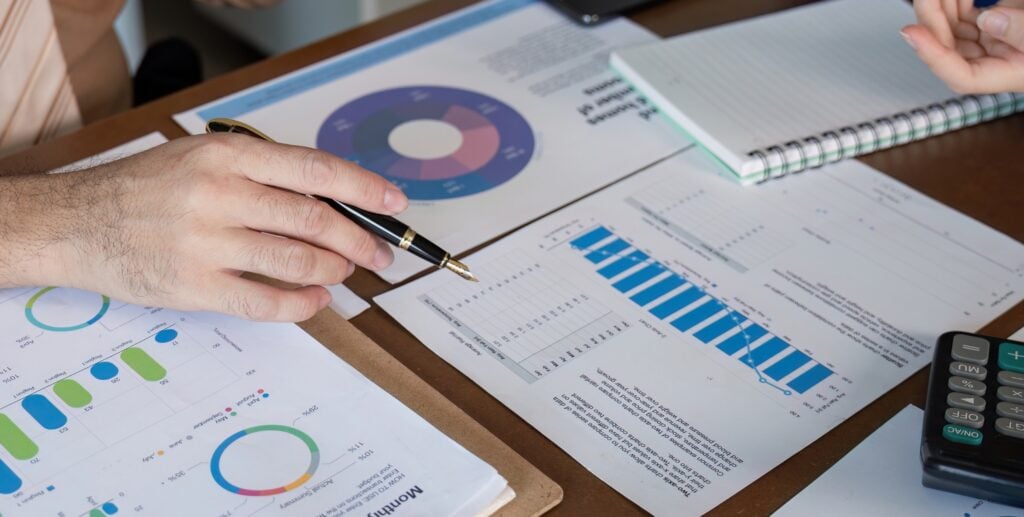In times of geopolitical tension, market volatility, and economic uncertainty, emotions can become a hidden liability for investors. The temptation to react, often hastily, can lead to decisions that erode long-term returns. Understanding and managing emotional biases isn’t just good practice; it’s essential to stay grounded when the headlines are anything but.
Emotional biases aren’t new. Examples date back centuries and more recently have been well-documented by behavioral economists including the late Nobel laureate Daniel Kahneman. For example, when something happens in the stock market, we instinctively want to take action. We are overconfident. We have a fear of missing out. We confuse correlation with causation. And we’re enticed by tantalizing yet unattainable high expected returns. By understanding and learning from history, investors can avoid the emotional biases and mistakes that others have made.
In light of the uncertainty dominating today’s markets and headlines, it’s worth revisiting some of the behavioral pitfalls that have tripped up investors for centuries, many of which I explore in my recent book, Trailblazers, Heroes, and Crooks: Stories to Make You a Smarter Investor.
Emotional Bias #1: Feeling the need to sell when there is a large drop in the stock market
When there is a large drop in the stock market, investors may feel the need to sell. Yet this is often the worst time to sell. Instead, a better strategy is known as “masterly inactivity,” or the art of knowing when not to act. It dates back to the Second Punic War (218–201 BCE), when Roman dictator Quintus Fabius defeated Carthaginian Hannibal Barca, one of the greatest military commanders in history.
When Hannibal initially tried to engage Fabius in a battle, Fabius did nothing, biding his time until he was able to build up his army. In 1974, in Zaire, Africa Muhammad Ali used masterly inactivity in the form of his famous rope-a-dope strategy to defeat George Foreman in an epic boxing match known as the Rumble in the Jungle.
In 1975, trailblazer Jack Bogle founded The Vanguard Group and introduced the first mutual fund index fund, designed as a long-term buy-and-hold vehicle. According to Bogle, “When you hear news that moves the market and your broker calls up and says, ‘Do something,’ just tell him my rule is ‘Don’t do something, just stand there!’”
Let’s look at what would have happened if an investor panicked following large stock market drops. The worst 10 US stock market days occurred in 1987, 1997, 2008, and 2020. The one-day drops ranged from -20% to -7.0%. The median (or mid-range) daily loss was -8.9%. Panic selling would have locked-in these losses. Alternatively, how would masterly inactivity have played out?
Over the subsequent 10 trading days, in seven of the 10 cases, the market was up, in one case the market was flat, and on only two cases the market continued downward. In both of those continued downturns, the market corrected soon after the 10 trading days. Overall, the average median short-term rebound was 5.5%. So, related to extreme negative events, on average, masterly inactivity pays off.
Emotional Bias #2: Overconfidence in investing abilities
Emotions and behavioral biases tend to lead to underperformance. A major bias identified by numerous studies is that investors tend to be overconfident in their abilities. Overconfidence can lead to excessive trading. In a classic study, academics Brad Barber and Terrence Odean from the University of California, Davis examined the discount broker accounts for more than 66,000 households between 1991 and 1996. While the overall market annual returns were 17.9%, those investors who traded the most underperformed by 6.5%. In 1998, Charley Ellis wrote the best-selling book, Winning the Loser’s Game. He used the analogy of amateur tennis players who tried to play like the pros but ended up losing. The same goes for investing. Instead of trading excessively and trying to beat the market, it can pay off to simply buy and hold an index fund.
Emotional Bias #3: Fear of missing out
One of the worst emotional reactions for an investor is FOMO or fear of missing out. It’s not a new investment phenomenon. It dates back at least three centuries. That’s when famed mathematician and physicist Sir Issac Newton made a huge gain in 1720 by investing in South Sea stock and sold out. He then watched the stock continue to rise, and afraid of what he was missing out on, got back in — right near the peak.
He ended up losing the equivalent of millions of dollars today. As he purportedly observed, “I can calculate the motion of heavenly bodies, but not the madness of people.” More recently, many investors were burned by FOMO in meme stocks like GameStop. Once an investor sells a security, they shouldn’t look back.

Emotional Bias #4: Assuming correlation implies causation
Correlation doesn’t imply causation. This headline from The Washington Post, in 2021 is a good example of getting that wrong: “Cristiano Ronaldo snubbed Coca-Cola. The company’s market value fell $4 billion.” At a European Football Championship press conference, Ronaldo proceeded to remove two bottles of Coke that were prominently displayed on the table in front of him.
This was shocking because Coca-Cola was one of the tournament’s official sponsors. He replaced them with a bottle of water, saying, “Agua. No Coca-Cola.” But the stock price drop had nothing to do with Ronaldo. Rather, the stock fell as expected that day on a technicality, on its ex-dividend date.
Here’s another example that shows correlation doesn’t imply causation. In 20 out of the first 22 Super Bowls, when an original NFL team won, the stock market was up that year, and vice versa when an AFC team won. That’s when the Super Bowl Indicator became huge news. But what could possibly suggest the winner of a football game could cause the outcome of the stock market in the subsequent year? Simple answer: nothing. Not surprisingly, since the Super Bowl Indicator appeared in the popular press, it’s been debunked. It’s been a virtual coin toss as to whether the market will move as predicted, just as you might expect when there isn’t any causation. Don’t be fooled by spurious correlations.

Emotional Bias #5: Wanting to believe something is true when it isn’t
In 1999, New York Mets’ owner Fred Wilpon agreed to buy out Bobby Bonilla’s contract and guaranteed him a rich deferred annuity worth a risk-free 8% per year. Why not, since Wilpon and his family were heavily invested in a fund that was providing steady annual returns of more than 14% between January 1990 and June 1999, with virtually no risk.
As Wilpon was to find out, the fund, run by the infamous fraudster Bernie Madoff, was based on a Ponzi scheme, one of the greatest swindles of all time. The apparent returns weren’t real. If something appears to be too good to be true, it probably is too good to be true.
Emotional Discipline in an Age of Geoeconomic Risk
As the global investment landscape becomes increasingly shaped by geopolitics and geoeconomic strategy — from shifting alliances to supply chain realignments — investors face a more complex and emotionally charged environment than ever before. While we can’t control the headlines, we can control how we respond to them. Emotional discipline remains one of the most underappreciated skills in an investor’s toolkit.
History reminds us that fear, overconfidence, and reactionary behavior often lead to poor decision-making, especially in volatile times. The key is not to eliminate emotion, but to recognize it, account for it, and avoid letting it dictate investment decisions. As CFA Institute’s Geoeconomics and Financial Markets page highlights, resilience today means more than diversification — it means cultivating the patience, awareness, and discipline to navigate uncertainty with clarity and long-term perspective.



























